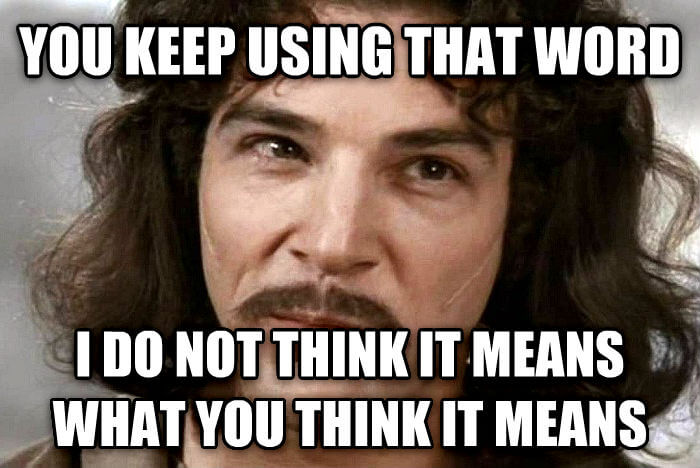
We've been trained to think that the more syllables we use per word, the smarter we sound.
When I was writing term papers in high school and college, I would right click on 'boring' words and find synonyms to replace them with. Use turned into utilize, help turned into assist, and makes turned into formulates. What I didn't realize was that the synonyms rarely had the same meaning in the context I was using them. Making dinner is very different than formulating dinner.
This is also true for the words we use when we speak. Take President Lincoln's Gettysburg Address. There are only 272 words. Over 200 of those words were ONE syllable. It doesn't take a bunch of SAT words to have a profound impact.
I believe in keeping it simple. I believe in making it so plain that nobody can miss what is being said.
-Zig Ziglar

What Can You Do?
When giving a presentation or writing a document, use common language to describe what is going on. If you want your words to have an impact, make sure you are clear and concise. Writing at a 12th-grade level is no longer impressive. Writing emails with five syllable words only makes you sound pretentious. The simpler your language, the clearer your message.
Impress your audience through your presentation and mastery of your topic, not by using complicated words.
Toastmasters International
The EU has a big problem with using words that don't mean what they think it means. This happens because many of their members don't speak English as their first language. There's even a name for this, Europe English. The EU produced a document that highlights the most common misuses of words in official documents. My two favorites are: 'assist at' which they mean 'attend' and also 'conditionality' where they should use 'conditions'. DON'T use Europe Speak.
More Information
- How To Write Effectively by Nido R. Qubein
- The Allusionist Podcast on use of words
- Misused English words and expressions in EU publications
image credits: https://flic.kr/p/66Aj3m